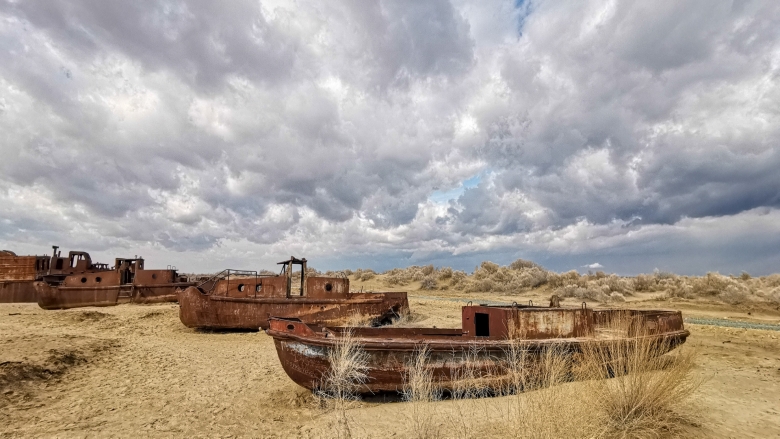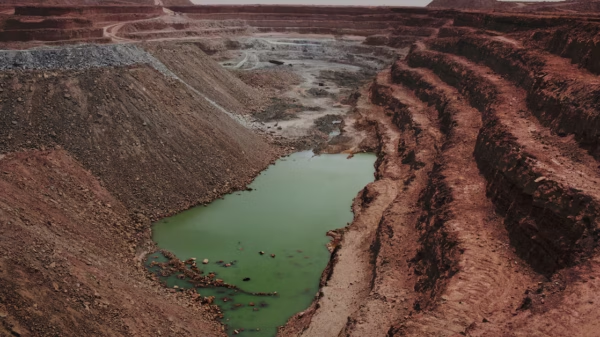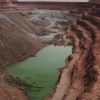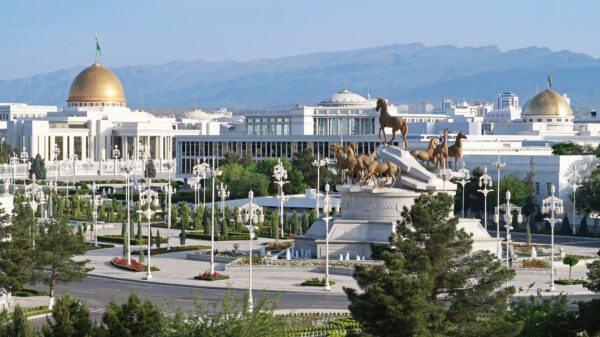A group of schools and organizations have teamed up to rehabilitate Kazakhstan’s section of the Aral Sea bed. They will be using state-of-the-art drone technology to deploy seeds with the aim of making the dried up lake much greener.
University of California Berkeley, developer of the “E-Seed” tech, has partnered with local Korkyt Ata Kyzylorda University, the Kazakh Directorate of the International Fund for Saving the Aral Sea and Bulat Utemuratov Foundation for the endeavour. They just signed a memorandum of cooperation, formally titled the Memorandum of Understanding and Protection of the Aral Ecosystem, thereby officially launching the project.
The technique will involve aerial seeding with drones that disperse self-burying seeds encased in biodegradable material. It enables rapid and large-planting while minimizing expenses.
A test planting will occur during the 2026 spring months followed by a second phase in 2027 if seed survival rates exceed 20 per cent. Initial costs will total approximately US$600,000. The test planting will consist of 1 hectare and the subsequent phase will expand to 50 hectares.
The government of Kazakhstan holds the “Improving the Ecosystem of the Aral Seabed” initiative in high esteem. It made an announcement about the campaign and a recent meeting regarding the matter on its website on Oct. 29. The nation’s Vice Minister of Science and Higher Education, Talgat Yeshenkulov, was in attendance.
“The use of innovative E-seed technology will strengthen the structure of soils, reduce dust and salt emissions, and in the future increase the biodiversity of the region,” said Rakhat Kurmanbayev, an associate professor from Korkyt Ata Kyzylorda University. “By 2040, we plan to stabilize the ecosystem on an area of at least 50 [square] kilometres, reduce the air temperature by 1-2 degrees and improve the microclimate.”
Kazakhstan’s government and many others organizations consider the Aral Sea bed to be one of the world’s worst environmental disasters. Soviet-era irrigation diverted water from two primary rivers for cotton farming and caused 90 per cent of the Aral Sea bed to dry up, thereby leaving vast quantities of toxic dust.
“This dust, saturated with toxins and pesticide residues, poisons soil, water and air, threatening the health of millions of people and the food security of entire regions,” the government described.
It continues to cause respiratory health problems for locals and those as far away as the Himalayas or Arctic to this day.
“We are launching a project that will create a barrier against salt and toxic dust, improve human health and contribute to the future of the entire Earth,” said Bulat Utemuratov Foundation director, Ainur Karbozova.
The Bulat Utemuratov Foundation is a private charity organization founded by Kazakh billionaire Bulat Utemuratov. Its aim is to improve life for state residents, particularly kids with autism. The foundation seeks to rebuild parks, provide disaster relief and engage with educational initiatives.
Founded in 1937, Korkyt Ata Kyzylorda University is one of Kazakhstan’s oldest higher education institutions. It ranks ninth among the nation’s top schools.
Australia and China recently launched similar drone-powered seed planting initiatives for wildfire affected regions and dry terrain.
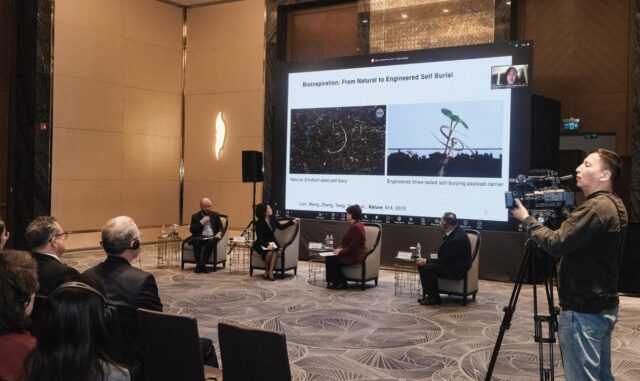
At this week’s launch meeting. Photo credit: Government of Kazakhstan
Read more: Malaysia deploys AI-integrated camera traps and drones to combat poachers
Follow Rowan Dunne on LinkedIn
rowan@mugglehead.com

